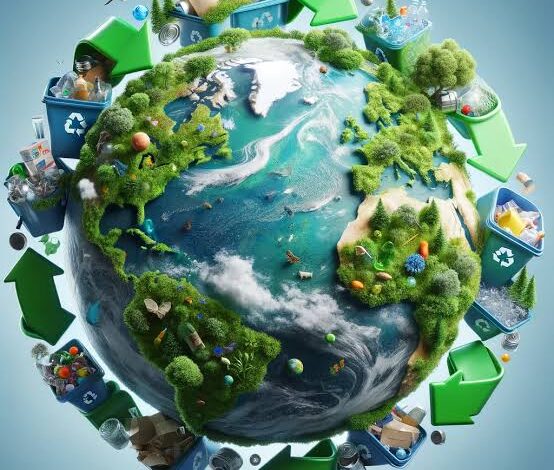Green Practices: Advancing Towards Sustainable Waste Disposal Strategies

As our population grows, waste production poses a significant environmental and health risk. Eco-friendly waste management practices promote conservation and create new markets and job opportunities. By implementing greener waste management techniques, we can increase recycling rates, reduce landfill usage, and mitigate the impact of waste on our planet. Sorting waste streams to recover recyclable materials is a progressive strategy that conserves resources and reduces energy consumption. We must embrace these practices globally as an investment in our planet’s future health and resources.
Benefits of Eco-Friendly Waste Disposal
Eco-friendly waste disposal strategies bring a plethora of benefits, both ecological and financial. Notably, by diminishing our dependence on landfills, we curtail the off-gassing of methane, a potent greenhouse gas, and circumvent the leaching of toxic materials into our soil and groundwater. Recycling and reusing initiatives are integral in fostering a circular economy, where waste is not an end product but a resource to be repurposed. Such efforts bolster economic growth by paving the way for innovations and employment, notably within renewable energy and recycling sectors.
Methods of Eco-Friendly Waste Disposal
The methodology behind sustainable waste management is diverse and ever-evolving. Foremost in these techniques is recycling, which transforms waste into usable products through mechanical or chemical processes. Composting presents an organic solution, turning kitchen and garden waste into nutrient-rich supplements for soil. Waste-to-energy, another viable solution, repurposes refuse into electricity, heat, or combustibles. There is also the burgeoning field of upcycling, which creatively gives a second life to objects that might otherwise be discarded. All these methods underscore the need for innovative thinking when managing the waste we generate.
Impact on Community and Environment
Sustainable junk removal and waste management profoundly and positively influence community welfare and environmental preservation. Proper disposal and recycling efforts result in cleaner public spaces, reduced pollution, and a marked decrease in greenhouse gas emissions, known contributors to climate change. Moreover, eco-friendly practices in waste management are instrumental in preserving ecosystems and wildlife habitats, thus safeguarding biodiversity. The commitment to environmentally friendly waste disposal reverberates far beyond mere regulatory compliance, reflecting a more profound societal responsibility to our shared planet.
Factors to Consider When Choosing a Disposal Service
Selecting a waste disposal service requires careful consideration of several factors. The provider’s commitment to environmental policies should be evident through their procedures and objectives. Customers should assess the service’s disposal methods, efficiency, and regulation adherence. Ensuring that the provider has a comprehensive recycling process is another critical factor. Trustworthy services maintain impeccably clean and orderly sites and are transparent about their operations. Making an informed choice directly impacts the ecological footprint, emphasizing the crucial role of consumers in driving demand for sustainable disposal options.
Future Trends in Waste Disposal
As sustainability becomes more crucial globally, trends in waste management point towards innovation and responsibility. Biodegradable materials will rise, technological advancements will revolutionize organic waste handling, and people will opt for minimal waste lifestyles. Achieving sustainable waste disposal is a collective endeavor requiring collaboration. Embracing eco-friendly waste disposal methods is pivotal to our planet’s health and future generations.





